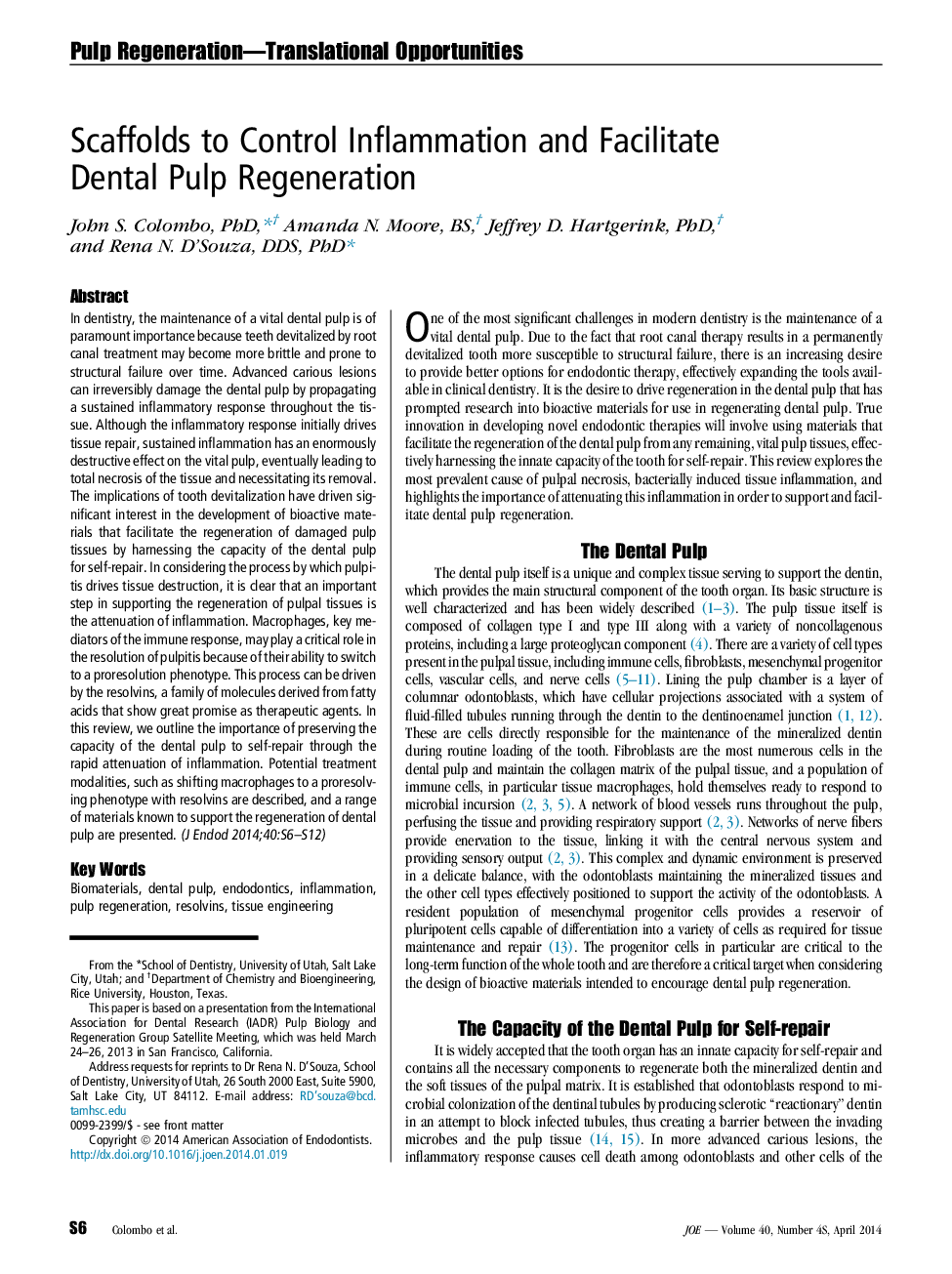| Article ID | Journal | Published Year | Pages | File Type |
|---|---|---|---|---|
| 3146839 | Journal of Endodontics | 2014 | 7 Pages |
In dentistry, the maintenance of a vital dental pulp is of paramount importance because teeth devitalized by root canal treatment may become more brittle and prone to structural failure over time. Advanced carious lesions can irreversibly damage the dental pulp by propagating a sustained inflammatory response throughout the tissue. Although the inflammatory response initially drives tissue repair, sustained inflammation has an enormously destructive effect on the vital pulp, eventually leading to total necrosis of the tissue and necessitating its removal. The implications of tooth devitalization have driven significant interest in the development of bioactive materials that facilitate the regeneration of damaged pulp tissues by harnessing the capacity of the dental pulp for self-repair. In considering the process by which pulpitis drives tissue destruction, it is clear that an important step in supporting the regeneration of pulpal tissues is the attenuation of inflammation. Macrophages, key mediators of the immune response, may play a critical role in the resolution of pulpitis because of their ability to switch to a proresolution phenotype. This process can be driven by the resolvins, a family of molecules derived from fatty acids that show great promise as therapeutic agents. In this review, we outline the importance of preserving the capacity of the dental pulp to self-repair through the rapid attenuation of inflammation. Potential treatment modalities, such as shifting macrophages to a proresolving phenotype with resolvins are described, and a range of materials known to support the regeneration of dental pulp are presented.
